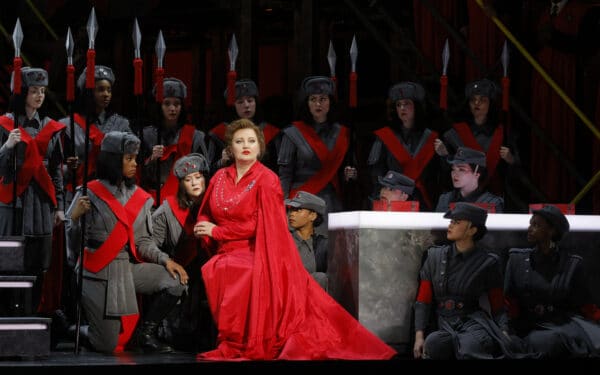An article from BBC News Magazine comments on the 70th anniversary (today) of the so-called Battle of Cable Street, in which 100,000 protestors reputedly repelled a march by the followers of Sir Oswald Mosley, and asks: “Seventy years ago, the Battle of Cable Street saw Jews and left-wingers stop fascist Blackshirts marching through east London. But is it still important?”
The answer is that it never was important. The historian Robert Skidelsky wrote a disturbingly sympathetic biography of Mosley (which thirty years later should be supplemented with the badly written but well researched and reliable Blackshirt: Sir Oswald Mosley and British Fascism by Stephen Dorrill), but he does make the right point in this article: “It is partly true the opposition stopped Mosley from marching, but the reality is that he was asked to call it off, he gained support as a result of it, and he wanted to call it off anyway as he had an engagement in Berlin [to secretly marry Diana Guinness at Goebbels’s house] the next day. It was all a bit less heroic than it seemed.”
Mosley’s support in the area increased after the Battle of Cable Street, as did anti-Jewish violence. The so-called Pogrom of Mile End, in which Jews and their properties were attacked, took place a week afterwards. The anti-fascist protests were, on the evidence of one participant (my great-aunt, Margaret Kamm, who spoke to me about it many years later), politically hobbled and hijacked by the Communist Party. There is a longstanding mythology on the far Left of direct action whereby fascism was stopped. In fact Cable Street had little to do with Mosley’s increasing isolation and defeat. The British party system, in which all the main parties (Labour and the Liberals included, contrary to modern selective interpretations) made horrendous misjudgements about the gravity of the threat from Nazism, proved resilient against both political extremism and the forces of economic depression. Mosley was a sinister and repugnant figure, all right, but his bombastic absurdity – attempting to transplant the symbols of fascism to an altogether different political culture – along with the vicious sectarianism of extremist politics were the main influences in undermining his superficial appeal. By the time of his internment in 1940, he was an utterly discredited figure.
The main attraction of the myth of Cable Street is for parties that stress the politics of the street and revile parliamentary democracy. Their celebration is doubly inapt, first because it wasn’t street protest that defeated Mosley, and secondly because the forces of bigotry are not ones that those parties oppose. The fact that the area is now represented in Parliament by a blustering demagogue, George Galloway, who is supported by an unequivocally antisemitic organisation, the Socialist Workers’ Party (for which the Respect ‘Coalition’ is an electoral front), is an irony too obvious to comment on.
This article was originally published ten years ago by Oliver Kamm and can be read here.



